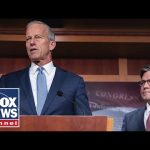Miami under Francis Suarez has been a bright spot for conservative governance — a city that embraced pro-growth policies, low taxes, and private-sector dynamism instead of surrendering every decision to bureaucrats in Tallahassee or Washington. Business-friendly reforms, a focus on innovation, and a refusal to let urban pessimism define the skyline turned Miami into a magnet for investment and hard-working families chasing opportunity. The mayor’s emphasis on a free-market approach and modernizing city policy became a tangible rebuttal to the left’s narrative that only big government can save cities.
Now that Suarez is term-limited, Miami stands at a crossroads with the 2025 mayoral election set for November 4, 2025, and the future direction of the city hanging in the balance. This isn’t academic; local leadership shapes safety, zoning, and fiscal discipline — the practical issues that affect working people’s daily lives. Conservatives must recognize that municipal contests determine whether a city keeps its commerce-friendly posture or slides into the hand-wringing, regulation-heavy playbook that drives out jobs.
The summer’s attempt by some commissioners to postpone the 2025 election until 2026 sparked a legitimate fury among citizens who saw it as an end-run around voters, and a judge pushed back forcefully, ruling the delay unconstitutional. That legal rebuke underscored a fundamental principle: elections belong to the people, not to politicians trying to extend their terms by bureaucratic maneuvering. It also revealed how fragile local democracy can be when officials treat timing as a lever to hold power rather than a schedule to serve the public.
Into that vacuum has stepped a scattershot field of contenders, including familiar names who’ve long been fixtures in Miami politics and newcomers promising reform. Former mayor Xavier Suárez — the elder statesman who once led Miami and happens to be Francis Suarez’s father — has filed to run, making the race as personal as it is political. Other announced candidates and potential entrants create a crowded field where the conservative message of law, order, and growth must be loud and clear to prevail.
Patriots should be blunt: Democrats and left-leaning operatives would love to flip Miami’s mayoralty and turn a success story into another case study in urban decline. Yet Miami’s secret weapon remains its private sector — entrepreneurs, small-business owners, and a thriving international business community that won’t be easily hushed by progressive planners. That resilience, built by people who work for a living and expect accountable government, makes the city tougher to capture with clever slogans and hollow promises.
The political theater around the election-change stunt and relentless media sniping shows how mainstream outlets often prefer narratives that demoralize good governance rather than celebrate it. Conservatives should not be shy about calling out those media attacks for what they are: a corrosive force that discourages bold leadership and rewards complaint over competence. When reporters frame successful, pro-growth cities as somehow illegitimate, they are advancing an agenda, not informing citizens.
This moment demands that conservatives organize on the ground, educate voters about what’s at stake, and make November 4, 2025 a referendum on whether Miami will remain a beacon of opportunity or drift toward the same failed urban experiments that haunt other cities. Vote by mail and early voting are tools to be used; the calendar is set and the courtroom confirmed that the people decide, not political insiders. If conservatives show up and make the case for law and order, fiscal sanity, and a level playing field for business, Miami will keep proving that freedom works.
In the end, Miami’s future will be decided by its citizens — the taxi drivers, restaurant owners, construction workers, and families who built this city with grit and faith. They deserve leaders who value results over resume and who are judged by whether streets are safe, schools are improving, and the economy is humming. Conservatives can and should reclaim the narrative by sounding a clarion call: defend the rule of law, defend free enterprise, and defend the people’s right to choose their leaders without political gamesmanship.




